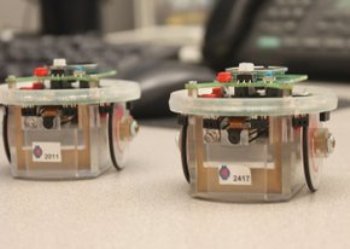A professor of Computer Science at the OU College of Engineering claims that robots can one day be made to care for fellow robots and human beings as well. Professor Dean Hougen works on his research at the OU Robotic Intelligence and Machine Learning Lab at OU.
 Caring Robots
Caring Robots
This lab was founded by him in the year 2001. The latest project that he has been working on at the lab dwells on the subject of robots learning to care for each other and humans eventually. He explained that to make robots develop feelings for one another merely programming them will not be enough.
Hougen pointed out that most living organisms are born with survival instincts. However survival tactics need to be constantly changed in order to adapt to the environment. He then proceeded to explain that the idea of survival gave birth to the idea of creating a robot which could help you by nurturing you and taking care of your needs according to the changes in the environment. Hougen shared his research ideas with one of his graduate students, named Mark Woehrer. They were also provided with useful inputs from the zoology department at the University. The learning environment for the robot consisted of placing the robot in the middle of a circle with a light switch and a bulb. This set up was aimed at making the robot to switch on the bulb and then sit under it to charge itself. With constant practice the robot was able to do these actions automatically without intervention from the researchers.
The research team then proceeded to nurture a parent child relation by placing two robots in the circle, where one is tagged a parent and the other the child. The algorithm on which the two robots were built was the same and after a period of time the parent robot would do the job of turning on the light while the child would sit under it. This behaviour was interpreted as the parent taking care of its child, just as human beings would do. From here on the research work was taken over by a senior student of computer science, Bryan Hoke, as part of his Research Assistant Program. Hoke draws inspiration from Darwin’s Theory of Evolution. During his research on robots Hougen observed that even simple robots need to be maintained and taken care of. He added that in future if robots are able to take care of fellow robots and maintain them, it will greatly reduce the human effort that is required for maintaining robots. He concluded that the scope of the research could also be extended to other fields like psychology, anthropology and the like.